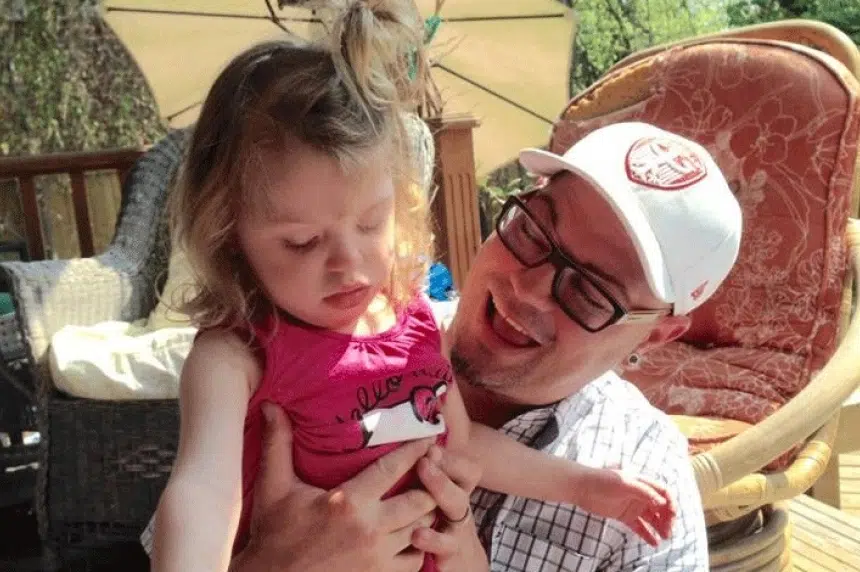Alexander Repetski hopes a new pilot study at the University of Saskatchewan will help legitimize cannabis treatment for childhood epilepsy.
He’s a firm believer in the approach as his daughter, Gwenevere, was diagnosed with epilepsy at three months old.
Doctors started her on first-line treatments, trying nine different traditional medications over ten months, but none worked.
“She was basically a two-year-old at this point and almost in a vegetative state. She was a two-year-old who could not crawl or sit on her own,” Repetski said.
The father from Thornhill, Ont. told 650 CKOM he spent many hours researching neurology, when he came across cannabis as a possible treatment. Repetski said while doctors eventually agreed to prescribe the drug, they couldn’t offer education on the product.
“They could not give me any information in terms of dosing, interactions with other drugs, so I basically had to figure out all of that myself,” he said.
Two years into the treatment, Repetski said his daughter’s quality of life has improved dramatically.
“She gone from having 50 seizures a day, to having a very mild seizure a couple of times a year,” he said. “While she still has lots of issues and challenges with cognitive delay, she’s now running, jumping, attends kindergarten with an assistant.”
Medical trials to start
U of S pediatric neurologist, Dr. Richard Huntsman, is one of the leads on a two-year pilot study looking at the safety and tolerability of cannabis treatment for children with epilepsy.
“I’m seeing quite a few children, whose parents have already placed their children on cannabis oil and one of the things I’m hearing fairly often is that the kids are brighter, more interactive, sleeping better,” Huntsman said.
“And the reason for that we don’t know why.”
Health Canada recently approved the study, which will include 30 children between the ages of one to 10 years.
The kids will be recruited from sites across Canada, including the U of S, University of Alberta, University of British Columbia, McGill University and Université de Montréal.
Doctors will slowly introduce cannabis oil to the children with dosage increments each month, while monitoring for potential side effects of the medication.
They will also look at seizure frequency and severity.
Huntsman said his cannabis research has been met with pushback, but added trials are necessary as parents become desperate for answers.
“We had feedback from scientists saying we shouldn’t be doing this. We shouldn’t be studying this in children, which I disagree with completely,” Huntsman said.
“Parents are seeing this, they’re reading about this. It’s all over social media … and a lot of them are trying it. And in some situations, possibly in a dangerous manner.”
The study is entirely funded with support from several organizations, including a sizeable grant from the Children’s Hospital Foundation of Saskatchewan.
“We felt it would be best if this wasn’t funded by any drug company, so that removes any potential bias,” Huntsman added.
The trials are expected to start in June.











